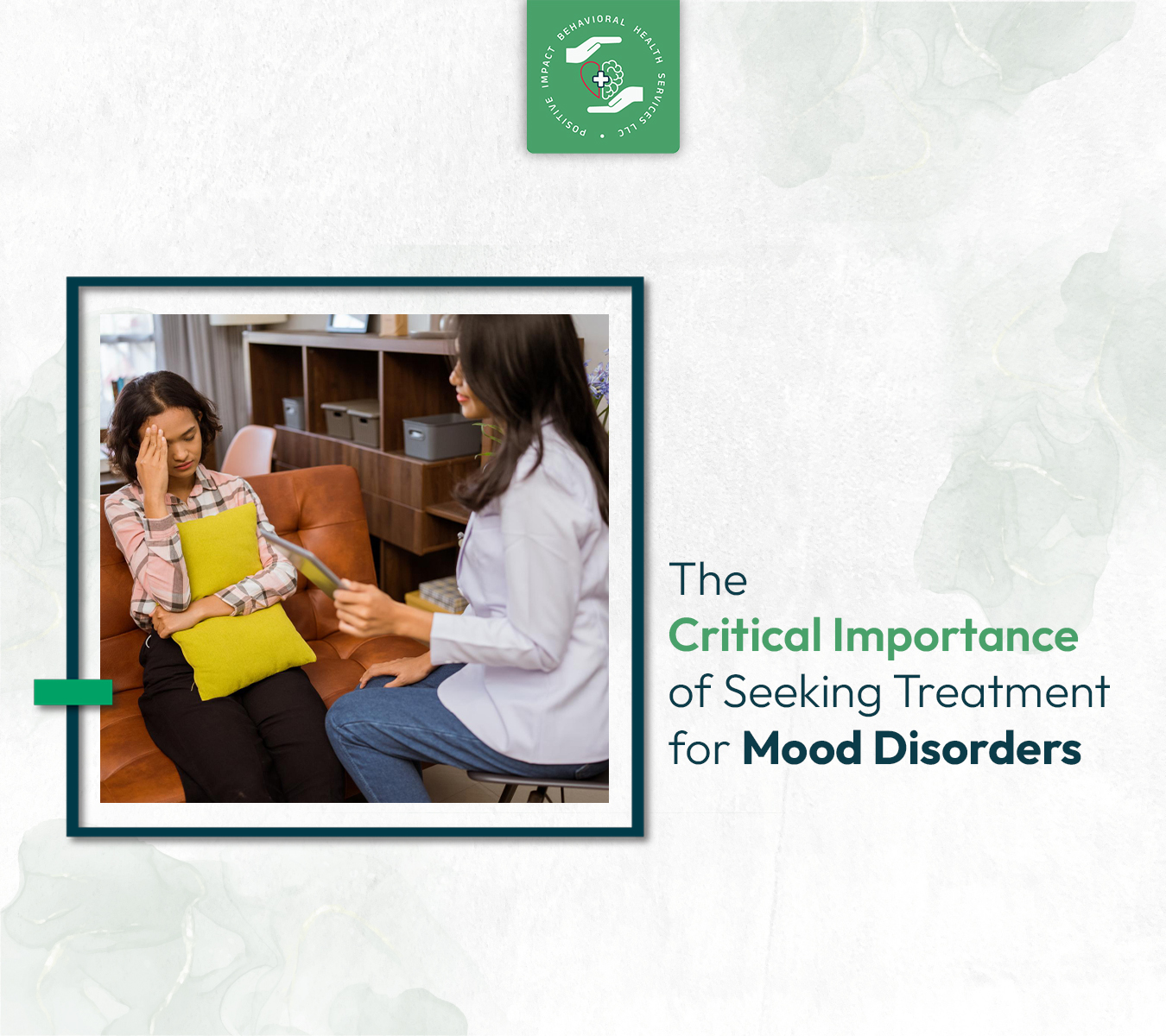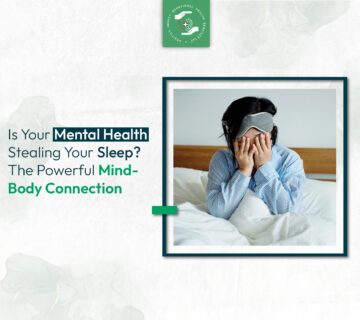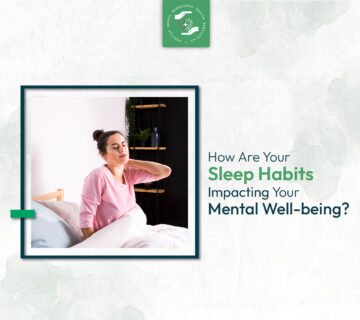Mood disorders change how a person feels, thinks, and acts. Life can feel heavy and stiff. Getting help matters. Help can bring back energy, clear thinking, and small joys.
What Mood Disorders Are
Mood disorders are conditions that cause prolonged feelings of sadness or extreme elation. Some common kinds are:
- Major Depressive Disorder (MDD)
- Persistent Depressive Disorder
- Cyclothymic Disorder
- Seasonal Affective Disorder (SAD)
- Premenstrual Dysphoric Disorder (PMDD)
Each kind looks a bit different. All can make work, school, and home life hard.
Why Treatment Matters
Mood disorders are real health problems. If left alone, they can get worse. Treatment helps people feel safer and steadier. Treatment can:
- Cut long times of sadness or anger.
- Help sleep and energy return.
- Improve thinking and daily choices.
- Let people do everyday tasks again.
Early care can make recovery faster. Treatment lowers the chance of other problems later.
Medication Management: The Main Focus
Positive Impact Behavioral Health focuses on medication to treat symptoms of mood disorders. This means:
- Doctors learn about the person and their symptoms.
- They pick medicine that fits the person.
- Doses are changed when needed to find what works.
- Side effects are watched and treated.
Medicine can give fast relief for deep sadness, wide mood swings, or very low energy. For many people, medicine helps them sleep, think, and feel less stuck.
The Role of Therapy
Therapy also helps. Therapy teaches new ways to cope and new habits to stay well. At Positive Impact Behavioral Health, therapy is a helpful add-on to medicine. In short:
- Medicine treats the symptoms more directly.
- Therapy teaches skills to keep getting better.
- Some people do best with both medicine and therapy.
Each person’s plan is different and can change over time.
Common Signs to Watch For
Mood disorders show in many ways. Not all people have the same signs. Common signs are:
- Feeling sad for most of the day.
- No longer finding enjoyable things.
- Being weary despite sleep.
- Radical alterations in appetite or weight.
- Moods that swing up and down.
- Difficulty in sleeping or oversleeping.
- Difficulty in concentration or recall.
If these signs last for weeks, think about a medical check.
What Treatment Looks Like
Treatment starts with a careful check. A doctor will:
- Ask about the symptoms and how long they last.
- Ask about health history and life events.
- Talk about medicine choices and what to expect.
- Plan follow-up visits to check progress.
Medicine can take a few weeks to work fully. The doctor watches for improvement and any side effects. The aim is fewer symptoms and a better daily life.
Safety and Support
Mood disorders can sometimes lead to thoughts of hurting oneself. Safety is most important. If someone is in danger or has such thoughts, get help right away. Family and friends can support the person by listening, staying calm, and helping the person reach medical care.
People do not choose to feel this way. It is not anyone’s fault. Treatment brings hope and small wins.
In medication care, visits may be more frequent at first. That helps the team see how the medicine is working. The team uses notes to track mood and sleep.
If someone is scared or unsafe, call emergency services or a crisis line right away. Loved ones can help by staying close and making sure the person is not alone.
Reasonable care is kind, steady, and calm.
How Treatment Helps Daily Life
When symptoms ease, people often notice:
- Better sleep and more energy.
- More interest in hobbies and work.
- Clearer thinking and fewer mood swings.
- Stronger ties with family and friends.
These changes make daily life easier and steadier.
What Positive Impact Behavioral Health Offers
Positive Impact Behavioral Health gives care that centers on medication in a kind and respectful way. The clinic aims to treat symptoms with care and skill. Services include:
- Depression
- Anxiety Disorders
- Mood Disorders
- Schizophrenia and Psychosis
- Trauma and PTSD
- ADHD
- Sleep Disorders
- Substance Use Concerns
The team checks each person and makes a plan focused on medication management. Therapy may be suggested as a helpful option when needed.
When to Consider Reaching Out
Think about a clinic visit if:
- Symptoms last more than two weeks.
- Mood makes daily life harder.
- Sleep, appetite, or relationships change a lot.
- Thoughts of hurting yourself occur.
This is plain information to help people decide. Here’s a link to Positive Impact Behavioral Health. You can use it to learn more or to book an appointment.
Conclusion
Mood disorders are common and treatable. Medication management can help many people feel better. Therapy adds skills that last. Care that watches symptoms and changes treatment when needed gives the best chance to recover. Knowing options and where to find care is a strong first step.
FAQs
Q. Can medicine cause side effects?
Yes. Some people feel tired, change their sleep, or have stomach problems. Clinicians watch for this.
Q. How long until I notice a change?
Many people notice a small change in a few weeks. The full effect can take longer.




